
Emails reveal that San Francisco Unified School District began working with with UCSF Children’s Hospital Gender Center in 2018
Investigations
- Issues
- Consulting
- Sex and Gender
A public records request submitted by Parents Defending Education reveals that San Francisco Unified School District and UCSF Benioff Children’s Hospital Child and Adolescent Gender Center have been working together since 2018. On November 30, 2018, UCSF staff facilitated a Gender Care Model Training for district middle school social workers.
The training, titled “Gender Care Model Training,” included the use of a document labeled “Case Examples for UCSF Gender Affirmative Model.” The material included four case studies produced by district social workers. The studies featured an eighth-grade female student who started identifying as “they/them” in sixth grade; then changed and began to identity as a male the next school year. The student is quoted in the case study as stating to social workers “this isn’t depression- it’s gender dysphoria” and “I need T (testosterone) or I will die.“
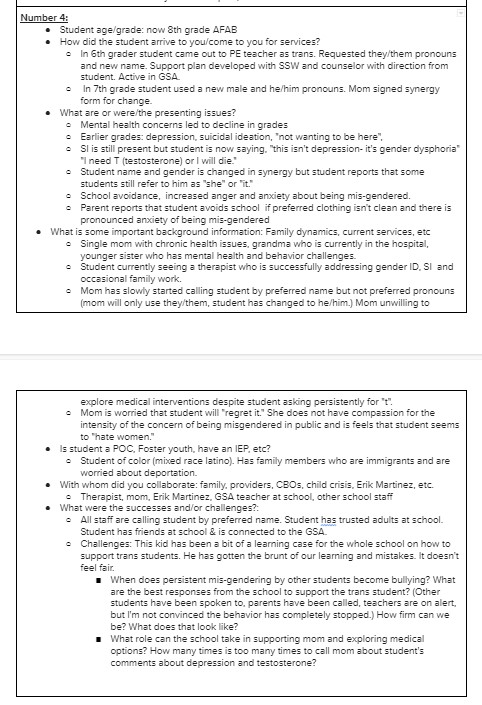
The document continues by stating that “Mom has slowly started calling student by preferred name but not preferred pronouns (mom will only use they/them, student has changed to he/him.) Mom unwilling to explore medical interventions despite student asking persistently for “t”. Further, the “Mom is worried that student will ‘regret it.’ She does not have compassion for the intensity of the concern of being misgendered in public and is [sic] feels that student seems to “hate women.’ “
The SFUSD document concludes by stating that “all staff are calling student by preferred name. Student has trusted adults at school. Student has friends at school & is connected to the GSA.” And, “what role can the school take in supporting mom and exploring medical options? How many times is too many times to call mom about student’s comments about depression and testosterone?”
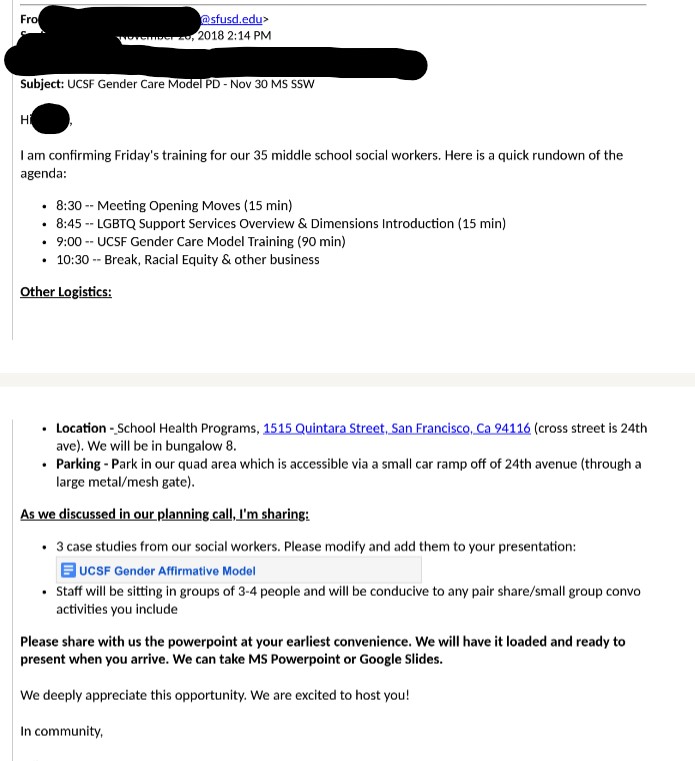
Another staff training provided by the UCSF gender center on February 13, 2019, featured a session titled “Gender Affirmative Care With Youth.” Focusing on “systems, trauma and dysphoria,” the presentation defines “gender health” as “a child/teen’s opportunity to live in the gender that feels most real or comfortable to that child and to express that gender with freedom from restriction, aspersion, or rejection.” The presentation promotes a “multidisciplinary approach to care” including medical interventions involving “Pediatrics, Endocrine, Psychiatry, OB/Gyn, Urology, Surgery.”
A slide titled “Assumptions of Gender” includes statements such as “you can tell a person’s gender when (or before) they are born” and “cisgender is ‘normal.'”
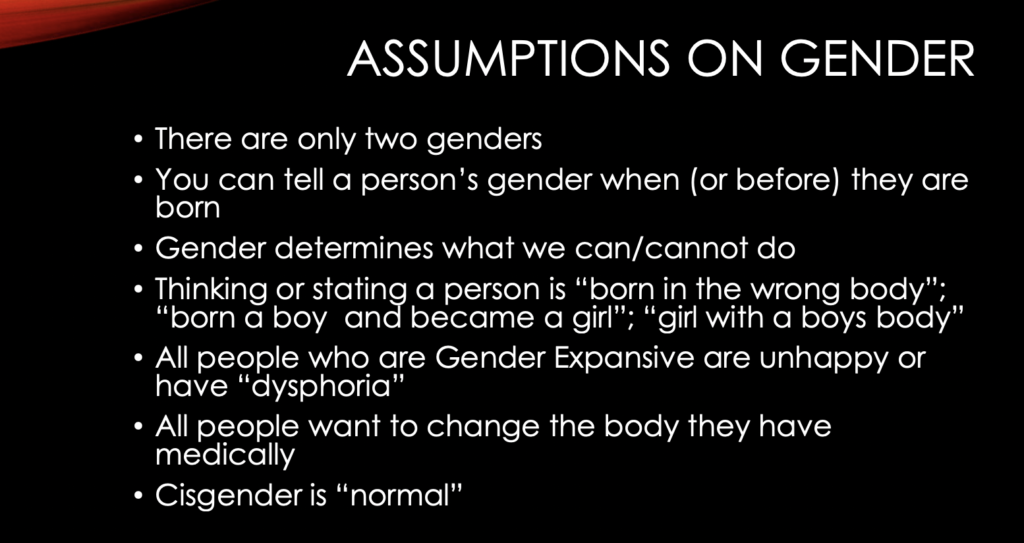
According to the presentation, the stated “goal of care” is “to interrupt the path of preventable distress/dysphoria that leads to poor mental health outcomes – care may or may not involve medical steps.”
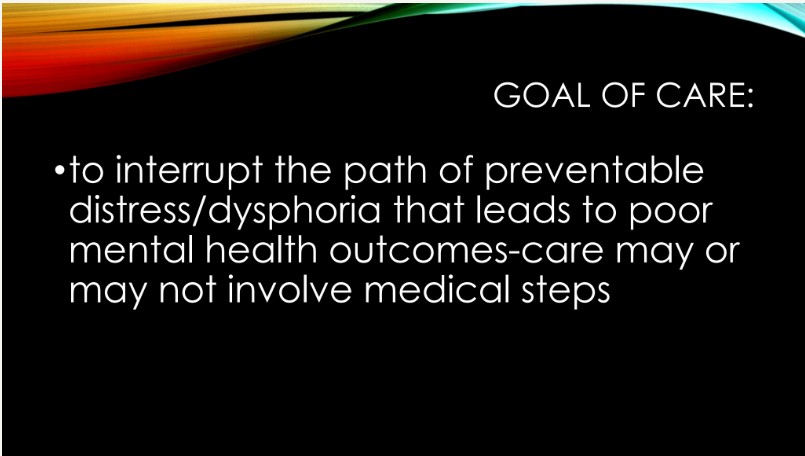
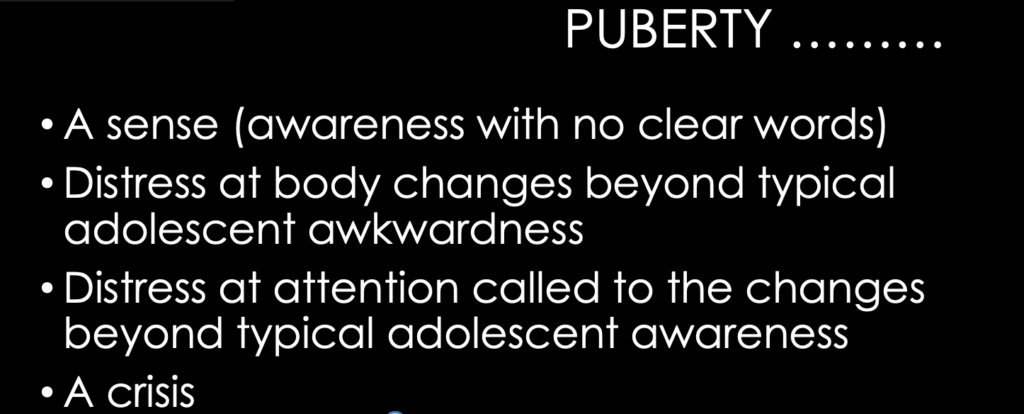
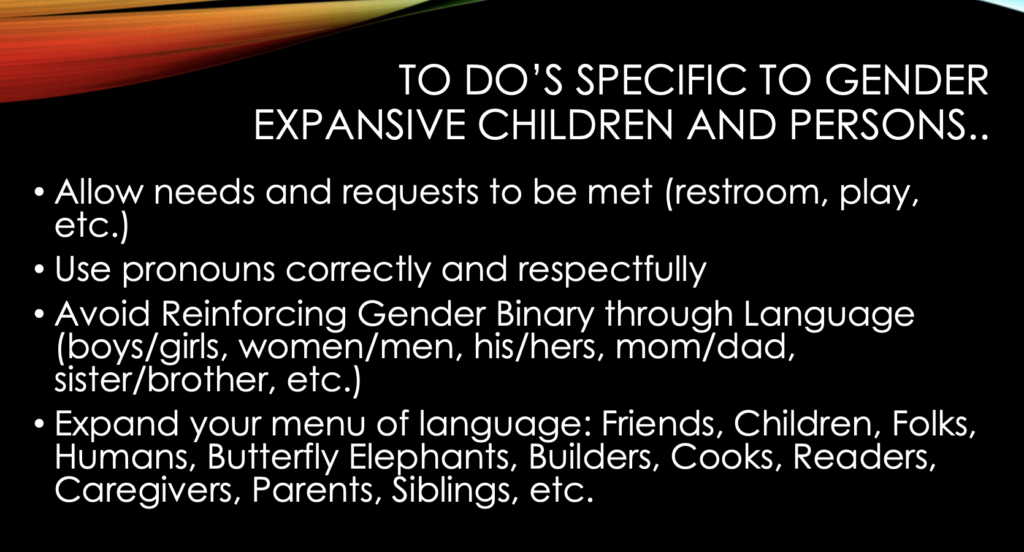
The full 59-slide presentation is below:
On April 10, 2019, district staff invited members from the UCSF Child and Adolescent Gender Center to be part of the district’s “Summer Health Summit.” Center staff were requested to provide training to district health education teachers covering the gender affirmative clinical model.
In May of 2019, gender center staff reached out to district leadership to collaborate on an “interdisciplinary clinic” the center was offering to the public. The clinic was to provide consultation services such as “mental health, medical, legal, spiritual, educational and social.” Center staff was inquiring whether “this is something your staff might be interested in participating in – one thought would be to have a rep from SFUSD to support families with navigating gender services at school.” UCSF staff also asked if “an SFUSD site may be available to house the clinic on a Saturday?”
In an August 19 reply, district leadership states that they “want to make sure one or both of us can cover this.”
In an email from UCSF staff to district personnel on August 25, 2020, center staff asks if “you have the districts language and or a contact within counseling for sfusd of how they are permitted to see kids without parental consent for mental health treatment.”
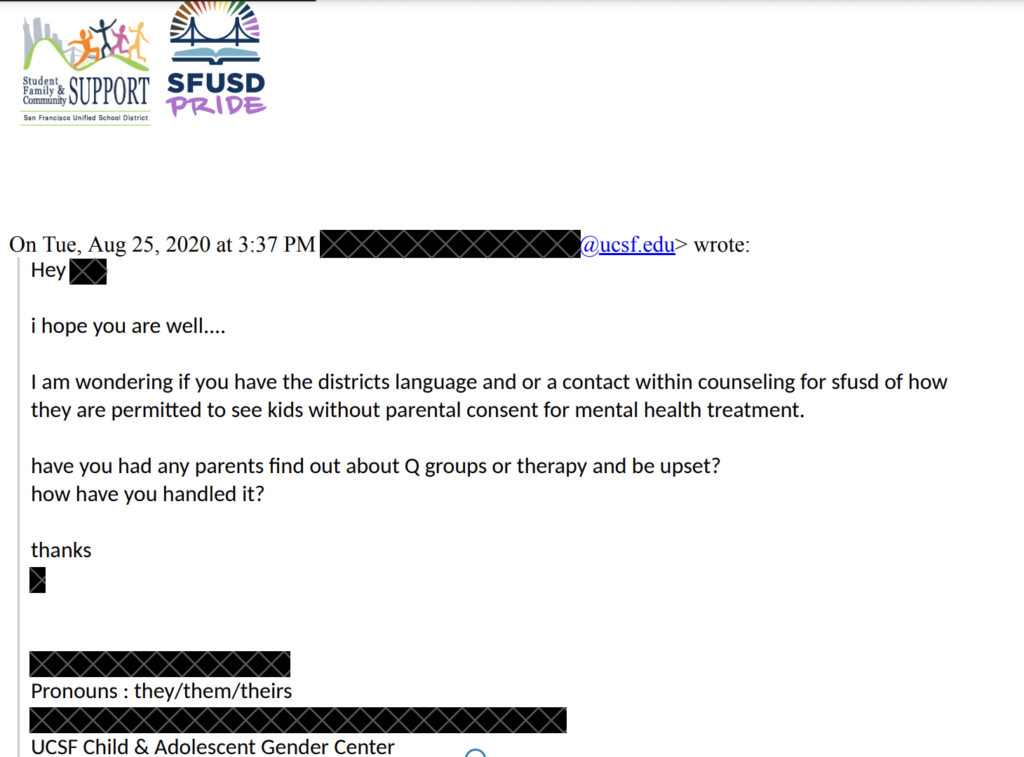
The center staffer continues: “have you had any parents find out about Q groups or therapy and be upset? how have you handled it?”
In a follow-up email to district leadership, the center staff member states that “my team has always taken the liability standpoint of not doing anything without consent and ive pushed at it for years because the law offers more room now (especially since 2019).” Continuing: “let me know when you’re free we can map out any partnership options in general and especially if you are not running groups make sure we can get some of these kids to us.”
In an email to SFUSD, a gender center staff member asks if the district staff member has “any colleagues equivalent in Oakland unified” they might talk to. The district staff member supplied two email contacts for Oakland Unified School District.
Stay Informed
